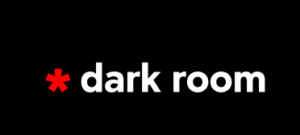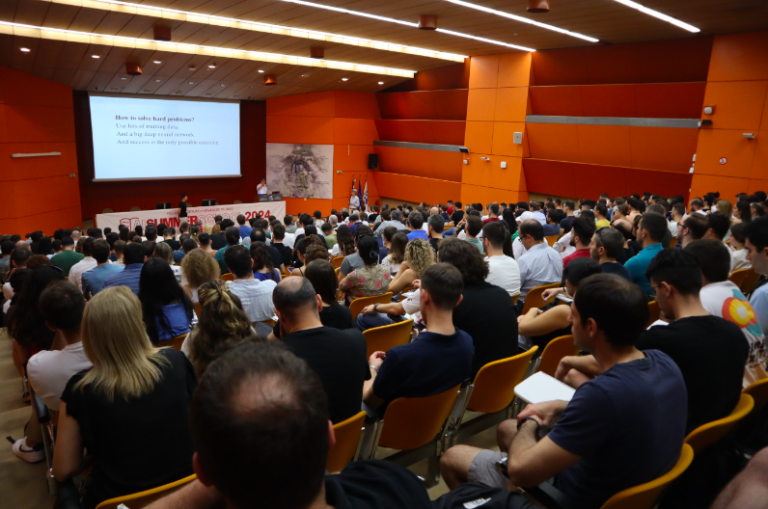Hello there! The week ahead is shaping up to be one of developments, especially concerning the President of the Republic. It seems logical that K.M. has already made his decision, though I doubt he has truly shared it with many people outside his immediate family—who, naturally, can’t be considered sources since they don’t talk. Now, since this column exists to share information and is in no way an official gazette (even though I don’t subscribe to that old-school journalism motto that newspapers the day after their release are only good for kindling or wrapping fish), I’ll tell you what I know. Here’s what we’re looking at:
a) The current President is likely stepping down. She knows it herself, has started “packing up” at the Presidential Mansion on Herodou Attikou, and is telling close confidants, “I’ll return to my life and daily routine. I want to teach again,” etc.
b) It seems there hasn’t been an “out-of-the-box” candidate who could tempt Mitsotakis into making a pleasant surprise appointment.
c) Papademos is ruled out for personal reasons, Stournaras because he’s the current central banker, and Mendoni because she’s a sitting minister. As for Alekos Papadopoulos—when that rumor surfaced, everyone was left wondering… “Where’d they dig up Alekaras?” The guy’s been grumbling over backgammon in a café for the past ten years.
Tasoulas
So what’s left? It seems like K.M. is leaning toward the safe choice of Kostas Tasoulas. While this is a party-line pick, it does have some broader appeal—though not enough to win over PASOK. At best, they might scrape together five or six stray MPs, as the role of President is not quite the same as Speaker of Parliament. The downside of this candidacy is that Tasoulas doesn’t speak good English, and it’s said he isn’t fond of flying. But he is serious, well-educated, and extremely reliable, with zero chance of causing any headaches for ND or Mitsotakis. Most of Mitsotakis’s close advisors, particularly those with deep ND roots, are on board with Tasoulas.
Benny
Without a doubt, the spiciest political pick would be Evangelos Venizelos. Choosing him would mean K.M. pulling off a bold move with PASOK while honoring the tradition of appointing Presidents from across party lines. Benny is a strong personality, highly educated (to the point of being almost… over-educated in Constitutional Law), and opinionated—potentially capable of creating minor headaches for any sitting Prime Minister. However, he is highly institutional and easily wins votes from both ND and PASOK MPs. That said, he’s less popular than Tasoulas among the ND grassroots. A notable downside is that some in K.M.’s inner circle haven’t forgotten Venizelos’s stance during the wiretapping scandal, especially that infamous article he penned the day after the issue exploded. Benny has the passionate backing of the PASOK-friendly wing of ND and all of Mitsotakis’s centrist voters.
What Androulakis Says
Rumor has it that PASOK leader Nikos Androulakis has some reservations about K.M. potentially proposing Evangelos Venizelos. Why? Because it would be hard for him to reject someone who helped catapult him onto the main stage of politics. Androulakis and Venizelos maintain a steady political relationship. In other words, Venizelos could secure votes from both ND and PASOK. On the other hand, regarding Tasoulas—a classic conservative whom PASOK supported for the Speakership—Androulakis is keeping his cards close to his chest. “Let’s see what Mitsotakis proposes,” is his standard response to those asking him about the scenario. That said, no one at Maximos Mansion expects PASOK to give Tasoulas much support.
SYRIZA’s Haste
Against this backdrop, if K.M. ultimately opts for Tasoulas, SYRIZA will have essentially shot itself in the foot by hastily proposing a candidate for President now. The SYRIZA Political Secretariat is meeting, and the names being floated are Louka Katseli and, less prominently, Nikos Kotzias. But here’s the catch: if SYRIZA announces today that it backs Louka, whom PASOK is unlikely to support, and K.M. later proposes Tasoulas, it will torpedo any chance of a broader agreement involving PASOK-SYRIZA-New Left, etc. Conversely, if SYRIZA waited for K.M.’s proposal, it could explore broader consensus options.
First, Scoop Up the Shares
Moving to market news: while 2025 was already anticipated to be a year of major deals—with 5-6 in the pipeline—the public offer by LeonidsPort (the Louis-Dreyfus billionaire family) on Friday afternoon caught us off guard. That +8.6% jump in the Thessaloniki Port Authority (OLTH) share price, however, suggests some weren’t surprised at all—something for the Hellenic Capital Market Commission to investigate, as they typically do in such cases. Now, to the crux of the matter. This column firmly believes there are no philanthropic investors. So, it’s hard to believe that this “kind lady” from Leningrad threw €57 million on the table to buy 21% of OLTH without having a grander plan. It’s likely tied to some pre-arranged deal with Ivan Savvidis’s camp. The talk in the market is that they’re first gathering shares from the Stock Exchange at €27, then later inking a deal to acquire Savvidis’s stake. Otherwise, the 21% acquisition doesn’t make sense, as Savvidis controls 67% of South Europe Gateway Thessaloniki (SEGT) and, thus, the Thessaloniki Port.
Why Is Ivan Selling Now?
Recently, reliable sources confirmed that Savvidis is also negotiating with Maris over the sale of Open TV. So, why is Ivan selling off assets he’s previously refused to part with? With Ivan, you never know—he’s always selling, selling but somehow never finalizing. This is why it will be interesting to see if the Hellenic Republic Asset Development Fund (HRADF) sells its 7.3% stake in OLTH, which would provide a clear indication of the government’s intentions regarding developments at the ports. Remember, HRADF also holds 67% of the Volos Port Authority, which is set to be sold for €51 million to OLTH. Again, nothing moves on the 21% without Savvidis’s blessing, as Belterra Investments (linked to Savvidis) holds 4.85% directly, and SEGT holds 67% (Savvidis owns 67% of SEGT, with CMA CGM holding 33%). The Louis-Dreyfus family’s LeonidsPort is offering €27 per share—a solid (+12%) but not exceptional premium, especially given the healthy dividend from 2024 and the potential “bonus” of acquiring Volos Port along with Thessaloniki. Also worth noting:
A) The family’s close ties to Thessaloniki-born banker-turned-entrepreneur Telis Mystakidis.
B) The involvement of Kyrillos Louis-Dreyfus, the family member overseeing their moves in Greece.
Here’s the full English translation of your text with close idioms, terms, and humorous expressions preserved:
The chain reaction has reached Lavrio and Astakos Port
The Port of Thessaloniki, despite so many years passing without all the required investments being fulfilled by its shareholders (an extension has been granted since the delay was not caused by the investors’ fault), boasts significant potential. Let’s not forget that COSCO, which operates the Port of Piraeus, has been placed on the U.S. Department of Defense’s blacklist, with all that this implies. However, the public tender for the 21% of the Thessaloniki Port Authority (OLTH) changes the game for all Greek ports. It should be noted that a tender is currently underway for the Port of Lavrio (the third-largest port in Attica), and the six prospective investors will now need to dig deeper into their pockets.
At the same time, developments concerning the ports highlight the importance of another “overlooked” port, that of Astakos in Aetolia-Acarnania. This is the largest port in Western Greece, with docks 17.5 meters deep (for reference, the only other port in Greece with such depth is the Piraeus Port Authority, while Thessaloniki’s depth is 14 meters). It is now considered a strategic asset, as, besides port facilities, it also includes an industrial zone of 1,800 acres (with infrastructure, gantry cranes, etc.). In fact, it is the only Free Industrial Zone in Greece. Ownership of the Astakos Port has passed 75% to Alpha Bank and 25% to Piraeus Bank.
It’s clear that after the developments with the Thessaloniki, Volos, and Lavrio ports, Astakos is poised to emerge as an attractive investment destination.
Luxury residences by Trump in Greece
And now we continue with the big business news—at least when it comes to big names. According to a post on ZAWYA on January 7, 2025, which cites a Reuters report, Dar Global (the international arm of Saudi Arabia’s Dar Al Arkan Real Estate Development) announced plans to expand into the U.S. and Greece in collaboration with the Trump Organization—the company of the former U.S. president.
Dar Global, according to the publication, stated that it plans to partner with top developers to create luxury residences in major cities in the U.S. and Greece, targeting American and international buyers. However, they did not disclose further details about the projects. The report mentions that Dar Global has completed a series of deals with the Trump Organization, including Trump Towers in Jeddah and Dubai and a real estate project in Oman.
Last month, Eric Trump, Executive Vice President of the Trump Organization, told Reuters that they had agreed with Dar Global on a tower in Riyadh and further expansion into Abu Dhabi.
My Home II starts on Wednesday
The banks are ready to press the start button for the “My Home II” program this Wednesday, January 15. They have already begun accepting expressions of interest and providing information about applications.
The new program is double the size of the previous one, with conditions allowing for a broader range of beneficiaries. The previous “My Home” program served 9,129 applications, amounting to €966.9 million. This time, expectations are for record-breaking demand, as the program boasts a doubled budget.
Banks are in a rush
This year, the systemic banks of the country will announce their results for the past year earlier than ever before. Piraeus Bank kicks off on February 24, followed by Alpha Bank on February 28. These announcements, as well as the highly anticipated dividend distributions, are expected to set the tone. The other two systemic banks will follow suit.
Perhaps this explains the recent surge in investment interest observed on the Athens Stock Exchange, with major portfolios driving high trading activity, generating turnover of around €95 million across the four systemic banks.
Hatzidakis in Brussels, stock market buzz, and funding updates
The Finance Minister is traveling to Brussels for the Eurogroup meeting, but back home, the ministry’s services, in collaboration with the Capital Market Commission and the Athens Exchange, are preparing a new regulatory framework for the stock market.
Apart from a brief official announcement, the ministry seems to be planning “surprises” for the capital markets. Meanwhile, this Wednesday, the government’s financial team (Hatzidakis, Papathanasis, and various General Secretaries) will hold the year’s first press conference to dispel rumors about delays in the implementation of Recovery Fund projects.
Detailed data will be shared regarding approvals and disbursements under the Greece 2.0 Program, which show that Greece ranks among the top countries in terms of absorption and milestone achievement concerning EU funding.
In 2024, the €3.3 billion disbursement target was surpassed, while for 2025, the €4.9 billion goal appears achievable. The Finance Ministry expects approval and disbursement of the fifth tranche from the Recovery Fund, amounting to €3.1 billion, within the first half of the year. In any case, the tight deadlines of the RRF (Recovery and Resilience Facility) are pressuring all eurozone countries, and a collective solution is being sought to ensure critical funds for European economic development are not lost.
Ticker changes from MED to ONYX
The management of a company listed on the Alternative Market of the Athens Stock Exchange is awaiting approval today to change its ticker from MED to ONYX. The company is undergoing a complete shift in activity and will now focus on tourism development and Energy (geothermal energy).
The next step will be the company’s transfer to the Main Market of the Athens Stock Exchange.
Powell’s Flip-Flop and the Markets
The mood shifted in New York. Based on Friday’s pricing of Fed Funds futures contracts, the markets now see almost no chance of a rate cut at the Federal Reserve’s meeting on January 28-29, and only assign a 25% probability to a rate cut at the next meeting in March. The recently released macroeconomic data indicate that progress on the inflation front has stalled, and for this reason, “there is no need for further easing of financial conditions.” Almost 25% of the Wall Street market now believes there will be no rate cuts at all in 2025, something that seemed almost unbelievable just a month ago. Without lower interest rates, investors must recalculate their decisions, as seen in the stock markets, with the Dow Jones dropping by 697 points (-1.6%) on Friday. The S&P 500 fell by -1.5% and ended the week with a decline of -1.9%. The Nasdaq Composite, composed of interest rate-sensitive growth stocks, dropped by -1.6% on Friday and by -2.3% over the week. The sudden shift in stance (some call it a flip-flop due to the new political landscape in Washington) by Federal Reserve Chairman Powell poses fresh dilemmas in Frankfurt. Christine Lagarde’s dilemma is complex. If she follows Powell’s strategy and delays eurozone rate cuts, it will worsen the already dire state of major European economies. On the other hand, if she moves too quickly to lower eurozone rates, it could trigger an “investment capital flight” from Europe to the U.S. at a time when the old continent desperately needs capital.
The Massive Firestorm for Insurance Companies in California
The wildfires in Southern California and Los Angeles (a city sprawling over 100 kilometers) have already burned roughly 40,000 acres of land—2.5 times the size of Manhattan in New York City. The estimated damages now exceed $150 billion, making this the most expensive wildfire in U.S. history, twelve times costlier than the previously most destructive fire, the 2018 Camp Fire in Paradise, California. According to JP Morgan, insured damages are expected to surpass the staggering amount of $20 billion. Here begins a strange story: an astonishing 69% of homeowners in Pacific Palisades lost their home insurance coverage before the disaster struck. Many insurance companies saw the risk, changed their policies, and left those who failed to adapt without coverage. When private insurers pulled out, homeowners turned to California’s FAIR Plan Insurance program. The FAIR Plan provides basic fire insurance for high-risk properties—those where traditional insurers refuse coverage. Losses under California’s FAIR Plan are expected to exceed $24 billion. Notably, reliance on the FAIR Plan for insured homes skyrocketed in 2024, increasing by +85% in Pacific Palisades. This means that the state of California will be required to compensate these homeowners, leaving it with a massive financial burden that will take years to manage.
Ask me anything
Explore related questions





